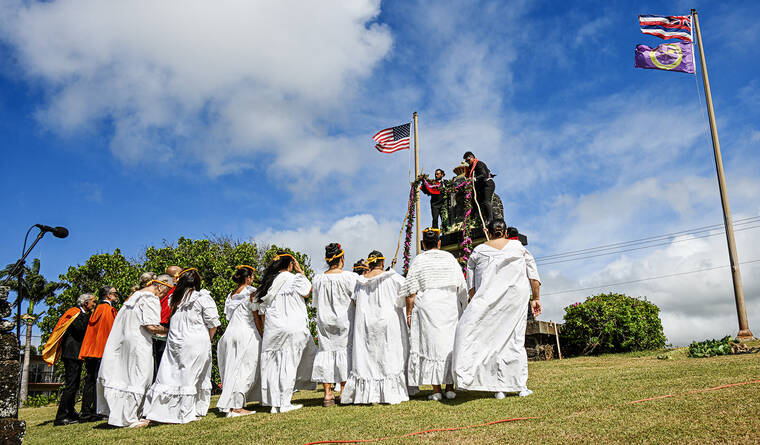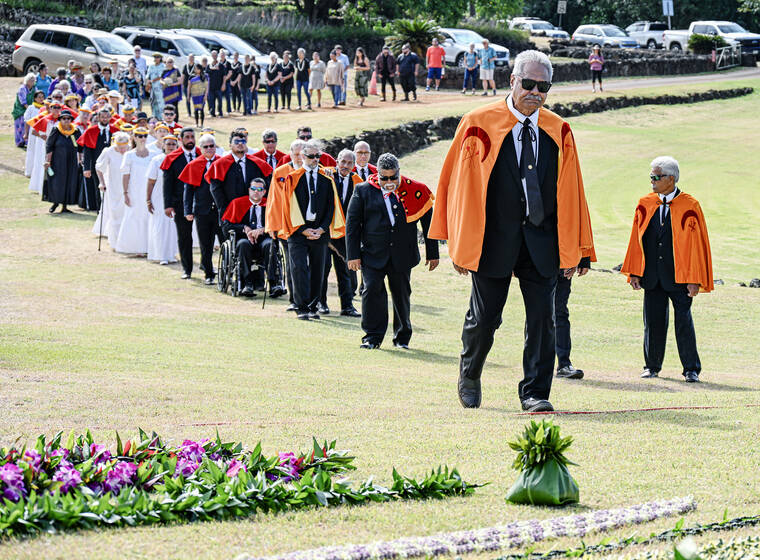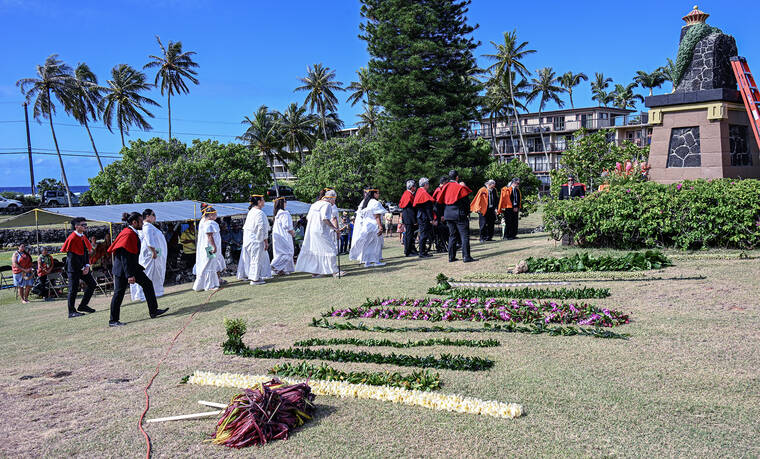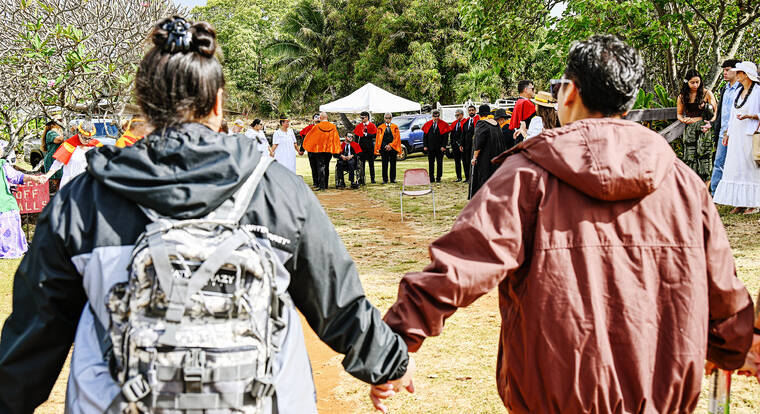PO‘IPU — People around the island took time out to celebrate the March 26, 1871, birthday of Prince Jonah Kalaniana‘ole Pi‘ikoi and his lifelong legacy of advocating and caring for the people of Hawai‘i.
The Royal Order of Kamehameha I, Chapter No. 3, “Kaumuali‘i” and Na Wahine Hui O Kamehameha, the designated caretaker of the Prince Kuhio Birthplace and Cultural Preserve, shortened to a more familiar Prince Kuhio Park, took the lead in honoring and remembering Kuhio by hosting the annual protocol ceremony on Saturday.
Attendance and participation in the annual protocol was by invitation from the Royal Order, and included local dignitaries like Mayor Derek S.K. Kawakami, Kaua‘i County Council Chair Mel Rapozo and council members Bernard Calvahlo Jr., Dr. Addison Bulosan and Kipukai Kuali‘i, who led the Council’s oli ho‘okupu.
The dignitaries joined other significant Hawaiian civic groups and organizations. Rapozo said it was the direct action of Kuhio that led to the system of county government with elected officials in Hawai‘i.
County and state offices, and public schools will be closed on March 26 in observance of the Prince’s birthday. This is the first of two local government holidays this week. The second holiday closure is for Good Friday.
The Grand Hyatt Kaua‘i Resort and Spa will celebrate Prince Jonah Kuhio Kalaniana‘ole on Monday starting with its opening protocol started at 8:50 a.m. in the resort’s lobby followed by a day with Hawaiian cultural practitioners.
Guests can learn konane with John Kaneholani, coconut weaving and lei hula demonstrations along a day of Hawaiian Music at the Seaview Terrance with Frank Cruz, Kirby Keough and Leoiki Kahalau.
A Grand Hyatt Kaua‘i announcement describes Prince Kuhio as Hawai‘i’s last reigning prince and celebrator of traditional Hawaiian arts, including lua, the Hawaiian martial arts.
“The People’s Prince, a man of commendable sincerity and strong convictions who always stood for what was right, not yielding to weakness,” the announcement states.









Kuhio created the Hawaiian Homelands and brought federal money to Hawaii. But admirers and sovereignty activists might be unaware of two things that should disqualify him as hero in their eyes.
(1) Kuhio did not stay in Hawaii to fight annexation in the mid to late 1890s; instead he went to South Africa on an adventure, fighting in the Boer War on the side of one White colonial power (British) against another White colonial power (Dutch) to settle which would control the land of indigenous Blacks.
(2) Kuhio filed a lawsuit against Lili’uokalani in 1915 to have her declared mentally incompetent to get himself appointed as conservator so he could nullify her creation of the Childrens Trust and get her Waikiki property for himself. The decision and court-authored syllabus (summary) is on the internet along with other historical commentaries. See Kalanianaole v. Liliuokalani ex rel. Andrews, 23 Haw. 457 (1916). A decade previously, when Lili’uokalani chose an attorney to write her trust, she rejected Kuhio and chose W.O. Smith (member of the Committee of Safety which staged the revolution that overthrew her). She had become friends with Smith and trusted his legal expertise and loyalty to her while distrusting Kuhio.